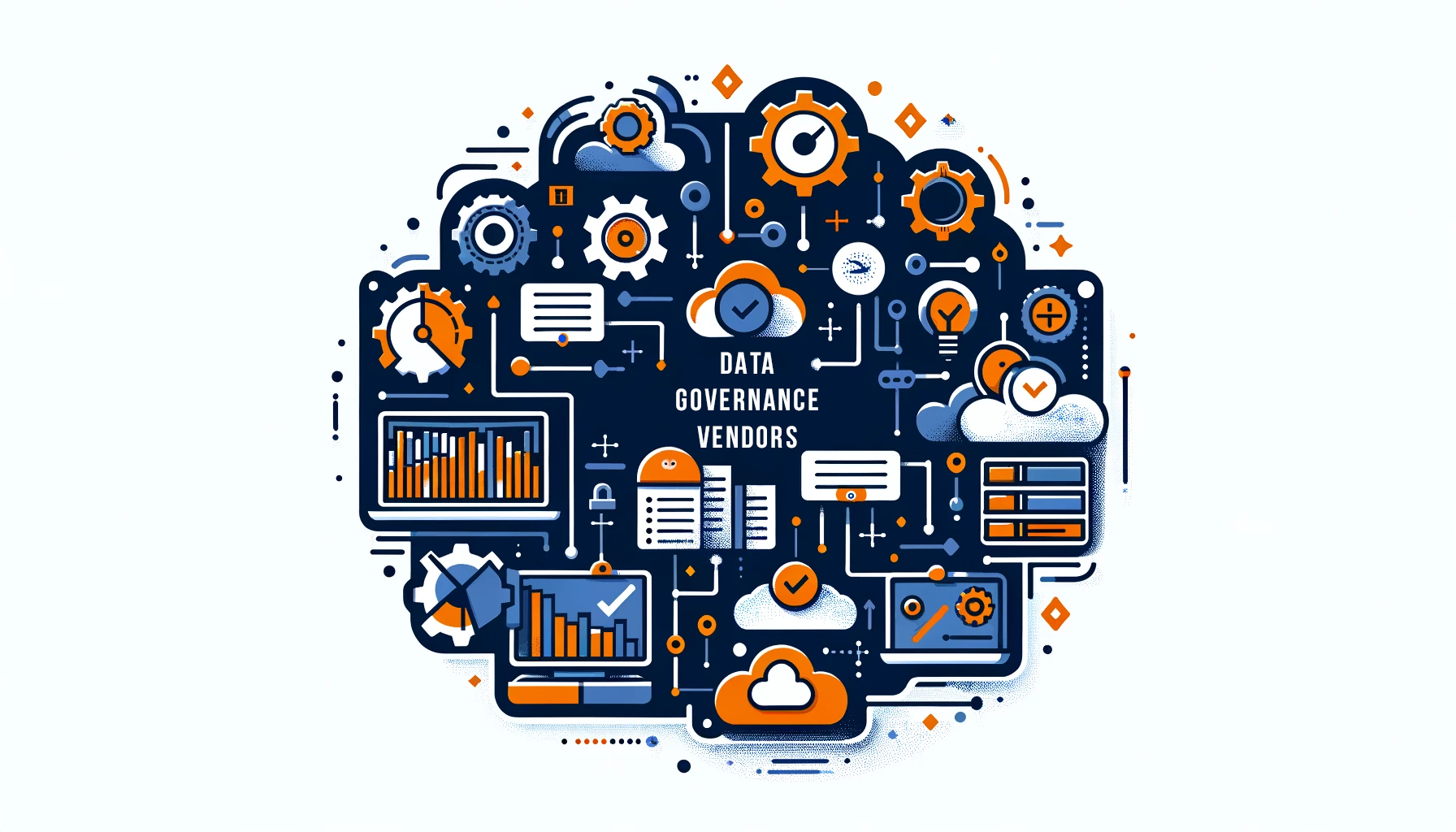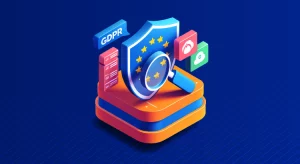
Data Governance Vendors

Today, organizations are collecting data from different sources such as customer records, financial transactions, social media, and sensors. However, merely possessing a large amount of data is not sufficient. To make good decisions, you need to have good data governance. Data governance vendors can help with this.
What are Data Governance Vendors?
Data governance vendors provide software solutions that help organizations manage, secure, and ensure the quality of their data assets. These tools help you create rules for how your company collects the data, stores, uses, and shares. By implementing a robust data governance framework, you can improve data accuracy, consistency, and reliability while complying with regulatory requirements and protecting sensitive information.
Open-source Software for Data Management
While proprietary vendors dominate the space, these open-source alternatives can provide cost-effective options for organizations looking to implement data governance practices. Here are a few notable open-source data governance tools:
Apache Atlas
Apache Atlas is a scalable and extensible metadata management and governance platform. It provides features like data classification, lineage, search, and collaboration. Atlas integrates with big data tools such as Apache Hadoop, Apache Hive, and Apache Spark.
ODPi Egeria
Egeria is an open-source project hosted by the ODPi (Open Data Platform Initiative). It provides tools to help organizations manage their data assets across different platforms and technologies. Egeria focuses on metadata management, data lineage, and data privacy.
Apache Ranger
While primarily focused on data security, Apache Ranger also includes some data governance features. It provides a centralized platform for defining and enforcing data access policies across data environments. This includes Hadoop, Apache Hive, and Apache HBase.
Amundsen
Developed by Lyft, Amundsen is an open-source data discovery and metadata management platform. It aims to make it easier for data scientists and analysts to find, understand, and trust the data they need. Amundsen integrates with various data sources and provides a user-friendly interface for searching and exploring data assets.
These open-source data governance solutions offer different levels of functionality and may require more technical expertise to implement compared to proprietary vendors. These options are ideal for organizations with limited funds or those who prefer open-source software. Open-source software offers flexibility and support from a community of users.
When picking an open-source data governance tool, think about community activity, documentation quality, and compatibility with your current data setup. Consider the support and services offered by the open-source provider or third-party vendors before making a decision.
Remember, implementing effective data governance involves more than just deploying a tool. To make sure data is handled properly, we need to create clear rules, procedures, and responsibilities. We also need to encourage a culture of teamwork and responsibility for data throughout the organization.
Proprietary Vendor Landscape
The market for data governance solutions is diverse and rapidly evolving. According to G2.com, a leading software review platform, there are dozens of vendors offering products in this space. Some of the top-rated solutions include:
- SAS Viya
- SAP Master Data Governance
- Egnyte
- Atlan
- Segment
- DataGalaxy
- MineOS
Each of these vendors brings unique capabilities and strengths to the table. In the following chapter, we will examine a handful of them in greater detail.
SAS Viya
SAS Viya is an end-to-end data management and analytics platform that includes powerful data governance features. It supports both on-premise data storage and integration with popular cloud data warehouses like Amazon Redshift, Google BigQuery, and Snowflake. With SAS Viya, you can:
- Create a centralized data catalog and glossary
- Define data quality rules and monitor compliance
- Set up data lineage and impact analysis
- Manage data access and security policies
For example, let’s say you want to ensure that all customer records in your CRM system have valid email addresses. Using SAS Viya, you could define a data quality rule that checks for the presence of an “@” symbol and a valid domain name. You could then run this rule on a regular basis and receive alerts if any records fail the check.
SAP Master Data Governance
SAP Master Data Governance is a comprehensive solution for managing and harmonizing master data across the enterprise. It integrates with SAP’s ERP and CRM systems as well as other databases and applications. Key features include:
- Master data consolidation and cleansing
- Hierarchy and relationship management
- Workflow-driven data governance processes
- Data quality monitoring and reporting
For instance, imagine you have customer data stored in multiple systems, each with its own formatting and naming conventions. Use SAP Master Data Governance to create one accurate record for each customer by combining data from all sources. You could then establish workflows to review and approve any changes to this master record.
Egnyte
Egnyte is a platform that helps keep your files safe in the cloud. It manages documents, images, and videos. It works with Microsoft Office, Google Workspace, and cloud storage services such as AWS, Azure, and Google Cloud. Egnyte’s capabilities include:
- Centralized content management and collaboration
- Granular access controls and permissions
- Data classification and PII detection
- Audit trails and reporting
As an example, suppose you have a team working on a sensitive legal document. With Egnyte, you could set up a secure folder for the project and invite only the necessary team members. You can limit downloading and printing of the document and get alerts if someone tries to share it outside.
Choosing the Right Data Governance Vendor
With so many options available, how do you select the best data governance vendor for your needs? Here are a few key factors to consider:
- Data sources and formats: Make sure the vendor supports all the data types and systems you use, whether on-premise or in the cloud.
- Scalability and performance: Search for a solution capable of managing your data volumes and offering quick query and analysis features.
- Security and compliance: Make sure the vendor has strong security measures like access controls, encryption, and auditing to protect your data.
- Integration and interoperability: Choose a platform that can integrate smoothly with your existing tools and workflows.
- Ease of use: Consider the learning curve for your team and look for intuitive interfaces and self-service capabilities.
Data Audit, Security and Compliance
Security is a major aspect of data governance operations for every company working with sensitive data. Security software usually stands apart from regular data operations products because of its specialized focus.
DataSunrise provides user-friendly and flexible tools for database security, auditing, and compliance. Their platform can work with many different databases, whether they are on-premise or in the cloud. It includes features such as real-time monitoring, data masking, and governance workflows.
Conclusion
Effective data governance is essential for any organization that wants to harness the power of its data assets. Data governance vendors provide the tools and frameworks needed to manage, secure, and ensure the quality of your data. By choosing the right vendor and implementing best practices, you can turn your data chaos into a strategic advantage.
To learn more about how DataSunrise can help you achieve your data governance goals, request a quick online demo. Our team of experts will be happy to walk you through DataSunrise platform and discuss your specific needs and requirements.
